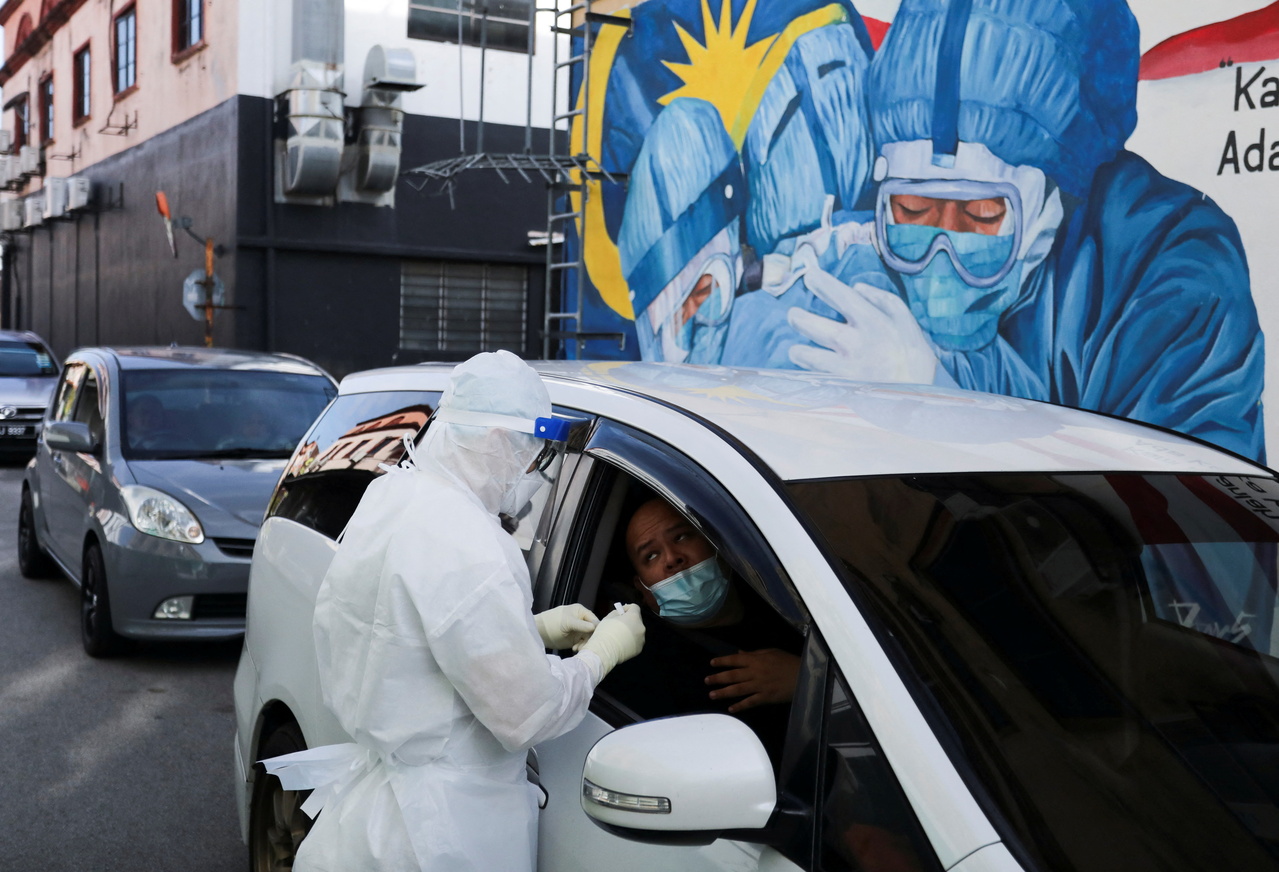Beware of Covid-19 'superspreading' events during Johor polls, Ramadan: Malaysia experts
Sign up now: Get insights on the biggest stories in Malaysia

Malaysian health experts are cautioning that daily Covid-19 cases may reach the 50,000-mark during this period.
PHOTO: REUTERS
Follow topic:
PETALING JAYA (THE STAR/ASIA NEWS NETWORK) - With the Johor polls set for Saturday (March 12), as well as Ramadan and Hari Raya taking place over the next two months, health experts are cautioning that daily Covid-19 cases may reach the 50,000 mark.
Professor Moy Foong Ming of Universiti Malaya's Department of Social and Preventive Medicine said that given the Omicron variant's high infection rate and the vaccines not being entirely effective against infections, a record-breaking new number of cases is possible.
"However, our high vaccination rate can strive towards minimising the number of severe cases and deaths that occurred during the Delta wave. If we are able to reach at least 80 per cent of the adult population having received their boosters and an increased number of vaccinations for children aged five to 11, we can then coexist with the virus whereby infections for most will be mild," she said in an interview.
She warned that despite Omicron having milder symptoms, it still poses a threat to the elderly, as well as the high-risk and unvaccinated groups.
"To protect these groups, we should reduce our mobility whenever possible and strictly adhere to standard operating procedures (SOPs) when in public.
"This can reduce the chances of infection and minimise the risk of having elderly or high-risk individuals within the family contract the virus," Prof Moy said.
She said that although the current increasing trend of cases is alarming, there is still hope in the efforts to reach endemic status for Covid-19 in which the daily number of cases would not burden local healthcare.
On the Johor polls, while Prof Moy applauded the monitoring of the SOPs, she hoped that members of the public would have the preventive measures internalised in order to exist with the virus during leisure and work.
Dr Sharifa Ezat Wan Puteh, a professor in health economics, hospital and health management at Universiti Kebangsaan Malaysia, warned that cases could continue on an upward trend if the authorities do not put their foot down on mitigating this.
"We have seen countries such as South Korea or Singapore, which have implemented a back-and-forth approach where restrictions are relaxed then tightened depending on the situation.
"This can similarly be done nationwide to minimise physical congestion where possible but, of course, by striking a balance between the lives and livelihoods of the people," she said.
In anticipation of increased social activities within the next few months, Dr Sharifa said it is everyone's responsibility to take his or her own precautionary measures.
"After any major congregation, take a self-test and monitor yourself for symptoms.
"If you test positive, please follow the steps laid out by the authorities and if you test negative, continue taking the necessary precautions to keep yourself and those around you safe," she added.
Universiti Putra Malaysia public health specialist Malina Osman said data for the past two weeks showed that the number of new and active cases had somewhat plateaued.
"Hopefully, this can result in a decreasing number of cases within the next two weeks," she added.
She said the current focus on the number of cases requiring hospitalisation, respiratory assistance and intensive care unit admissions could result in decisions on whether amendments should be made to existing SOPs.
"Despite all this, it is still important for all members of society to practise strict SOP compliance to mitigate the risk of contracting or spreading the virus."

